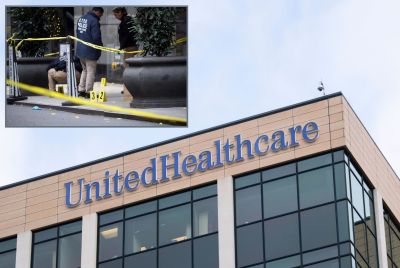Politics, economics collide over Opel: Paul Taylor
Political and economic logic are set to collide in the byzantine decision-making over the future of German carmaker Opel, the main European arm of fallen U.S. auto giant General Motors.
If politics prevail, as seems likely, the cost to German taxpayers will be higher and the chances of commercial success lower.
The aim of the Berlin government and four federal states, which are sustaining Opel with bridging finance, is to save as many German jobs and production sites as possible. That makes political sense ahead of September's general election. But the business logic is that only a greatly slimmed-down Opel can survive in an industry with chronic overcapacity.
In theory, it is up to GM's board to choose among the three offers it expected to receive on Monday from Canadian-Austrian car parts maker Magna (MGa.TO), Belgian financial investor RHJ RJHI.BR, and, less plausibly, Chinese state-owned auto maker BAIC.
But there are several other powerful players with a say. They include the trustees responsible for the company since GM entered U.S. bankruptcy in June, the German federal and state governments, Opel's works council and, last but not least, the European Commission, which must approve the restructuring plan as a condition for authorising the state aid.
The German authorities and Opel's workforce prefer Magna's bid, which is backed by Russia's Sberbank (SBER03.MM) and automaker GAZ. The strategy is to seek growth in the dynamic but volatile Russian market.
Magna requires the most state aid -- 4.5 billion euros -- but has pledged to keep all German production sites and cut 10,000 of the 50,000 workforce across Europe, of which just 2,500 would go in Germany. GM Europe also assembles Opels in Belgium, Spain and Poland, and in Britain under the Vauxhall marque.
GM management is thought to prefer RHJ because its offer includes a buy-back clause that could put Detroit back in the driver's seat after three years in which Opel would be shrunk. RHJ wants less state aid -- 3.8 billion euros -- and plans a similar number of job cuts. However, the make-up of those cuts would be unpalatable to the Germans: it plans to shrink the plant at Bochum and idle that in Eisenach until 2012.
However smart business this may be, it is lousy politics. Bochum, in the Ruhr industrial rust belt, is still smarting from the offshoring of a Nokia plant to Romania. And Eisenach was the first new car factory to open in ex-communist eastern Germany.
Indeed if GM defies Berlin's wishes, the government has said it would reconsider the offer of state aid to any other bidder.
The key may ultimately lie in Brussels. Germany's economics minister says the EU competition watchdog will require any buyer to inject more of its own funds as a condition for allowing state aid. That could lead to a more rational business solution, but it could also drive Opel into a dead end by making the deal unattractive to investors seeking a cheap ride.
(Editing by David Evans)





















